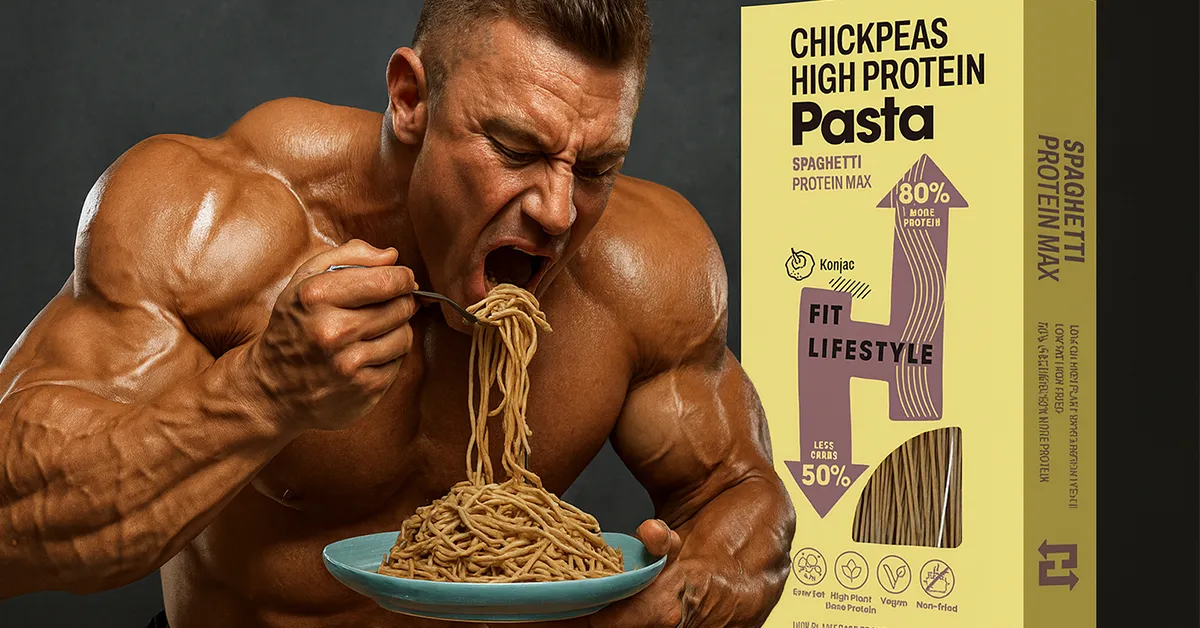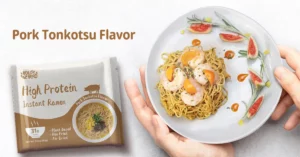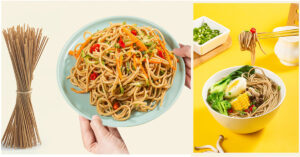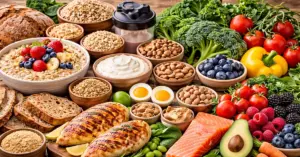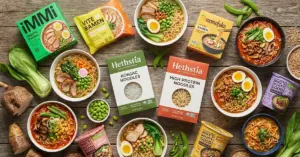Reading Time: 4 Minutes
Categories: Vegan Bodybuilding, Muscle Gain, Nutrition
Keywords: vegan bodybuilding, plant-based muscle gain, vegan meal plan, chickpea pasta nutrition
For decades, traditional fitness circles pushed one stubborn narrative: serious muscle requires chicken breast and whey protein.
Today, that myth is fading fast. Natural vegan bodybuilders are proving that you can build a competition-ready physique using nothing but plants — if you understand how to structure your macros intelligently.
The key isn’t just eating more protein. It’s choosing carbohydrate sources that work double duty: fueling training while delivering meaningful protein and micronutrients.
If you’re optimizing a vegan meal plan for muscle gain, it’s time to rethink pasta as a “cheat meal.” Legume-based carbs — especially chickpea pasta — offer one of the most efficient macro profiles in plant-based sports nutrition.
1. The Plant-Based Macro Blueprint
To trigger muscle hypertrophy, athletes need:
- A consistent caloric surplus
- Sufficient daily protein intake, ideally 1.6–2.2 g per kg of bodyweight (ISSN recommendation)
On a plant-based diet, the challenge isn’t meeting total protein—it’s doing so without overwhelming your diet with starch-heavy carbs. That’s where functional carbohydrate sources like chickpea noodles outperform standard wheat pasta.
Wheat vs. Chickpea Noodles: What the Data Shows
(Source: USDA FoodData Central & standard nutritional references)
| Nutrient (per 100g dry) | Traditional Wheat Pasta | Chickpea Protein Noodles | The Muscle Advantage |
| Protein | ~13g | 20–25g | ~80% more muscle-building fuel |
| Net Carbs | ~71g | 45–50g | Lower glycemic load; easier to stay lean |
| Fiber | ~3g | 12–15g | Better satiety, digestion & absorption |
| Amino Acids | Low Lysine | High Lysine | Ideal for complete protein pairing |
Why this matters: Lysine is often limited in grain-based vegan diets. Chickpeas naturally supply it, making chickpea pasta an excellent complement for complete protein synthesis — especially when paired with seeds, soy, or whole grains.
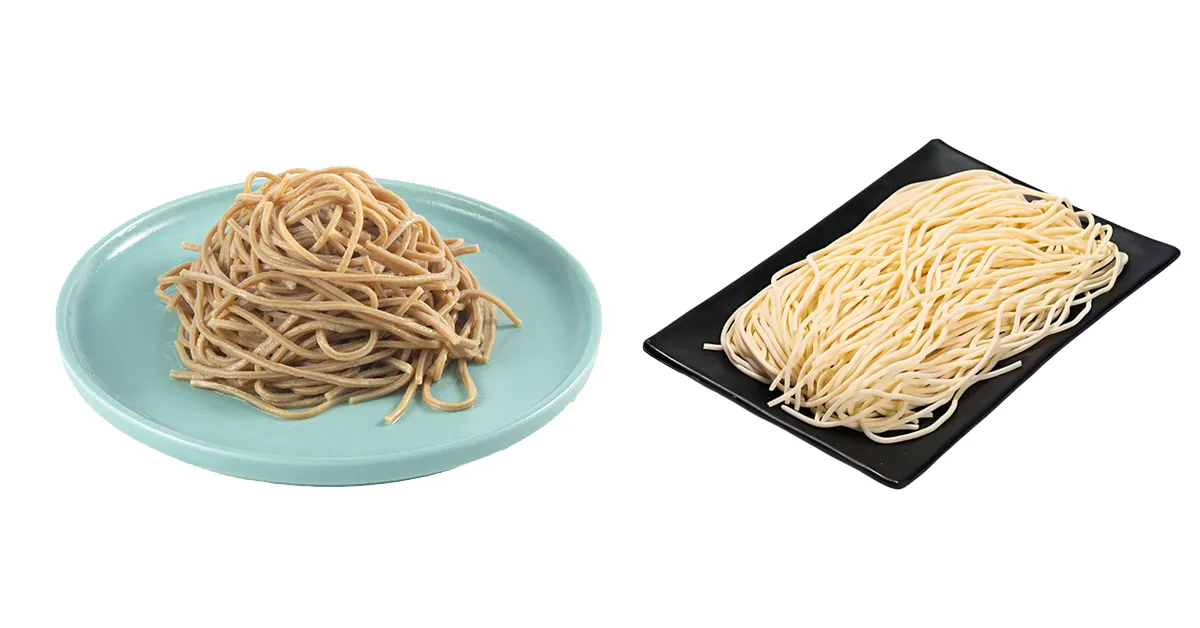
2. Post-Workout Power: Understanding the Anabolic Window
The so-called “anabolic window” is more flexible than old-school bodybuilding advice suggests, but nutrient timing still matters for athletes training with high volume and intensity.
Research indicates that consuming protein + complex carbohydrates within 60–90 minutes post-workout supports:
- Faster glycogen replenishment
- Reduced muscle breakdown
- Improved recovery and protein synthesis
- Stable insulin response to shuttle amino acids into muscle cells
Post-workout strategy:
Instead of high-GI carbs like white rice, choose complex, protein-rich carbohydrates. A serving of chickpea noodles provides:
- Slow-release carbs to refill glycogen
- A significant hit of plant protein
- Extra fiber and micronutrients that support recovery
This helps natural athletes train harder, recover better, and stay leaner through bulking phases.
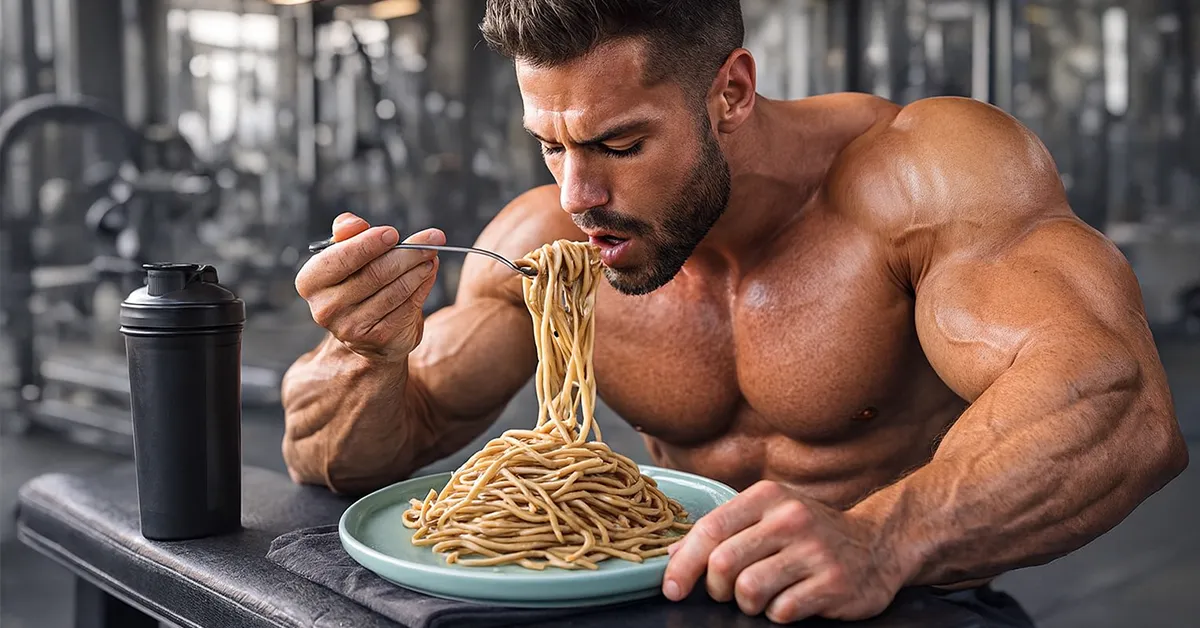
3. Essential Nutrients Vegan Athletes Must Prioritize
One common issue in natural vegan bodybuilding is overlooking micronutrients that influence strength, recovery, and energy metabolism. Legume-based pastas help supply several essentials:
Iron
Important for oxygen transport and endurance performance. Chickpeas and other legumes offer a strong plant-based source, especially when paired with vitamin C–rich foods to boost absorption.
Magnesium
Supports muscle contraction, nerve function, and recovery. Many athletes are unknowingly deficient.
Fiber
Crucial for digestive health and appetite control, especially during cutting phases when calories are tighter.
B Vitamins
If fortified (e.g., nutritional yeast sauce), your meal can also contribute B12 and other energy-related vitamins, supporting metabolic efficiency.
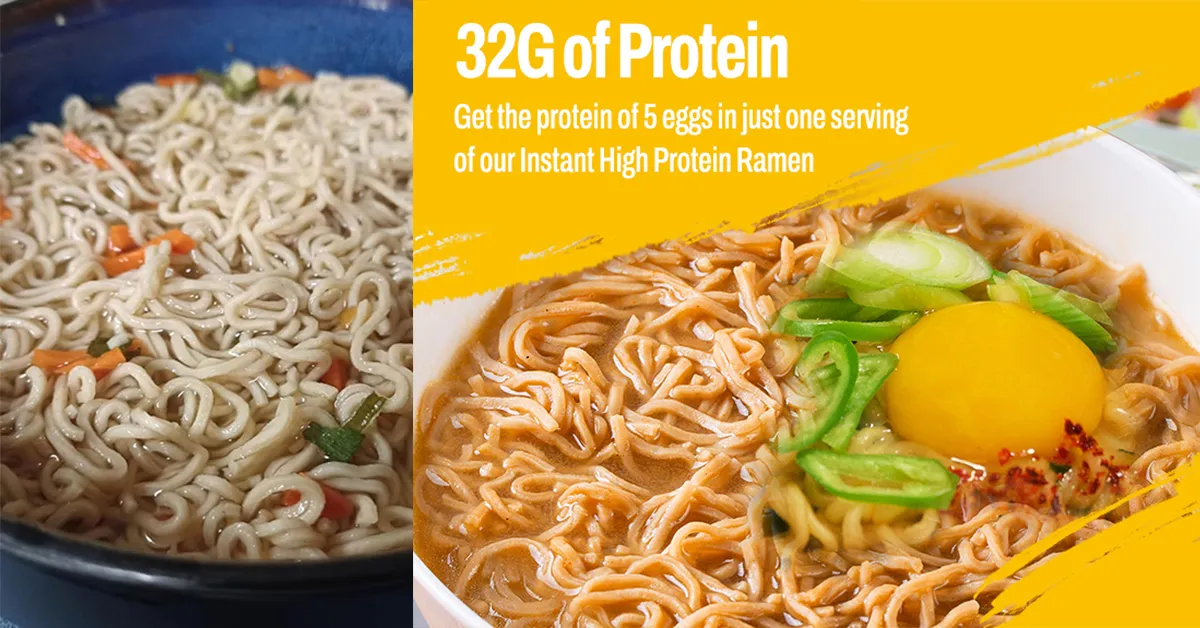
4. The “Gains” Meal Prep: Spicy Chickpea Pasta Bowl
A fast, nutrient-dense, muscle-building meal ready in 15 minutes.
- 62g Hethstia high protein chicken noodles (~32g protein)
- Roasted red peppers
- Nutritional yeast (B12 + umami)
- Cashews (healthy fats, creaminess)
- Garlic & smoked paprika
- 100g tempeh or tofu crumbles
- Fresh spinach or kale
~45g Protein | ~60g Carbs | ~15g Fat
Balanced, complete, and ideal for post-workout recovery or a high-protein lunch.
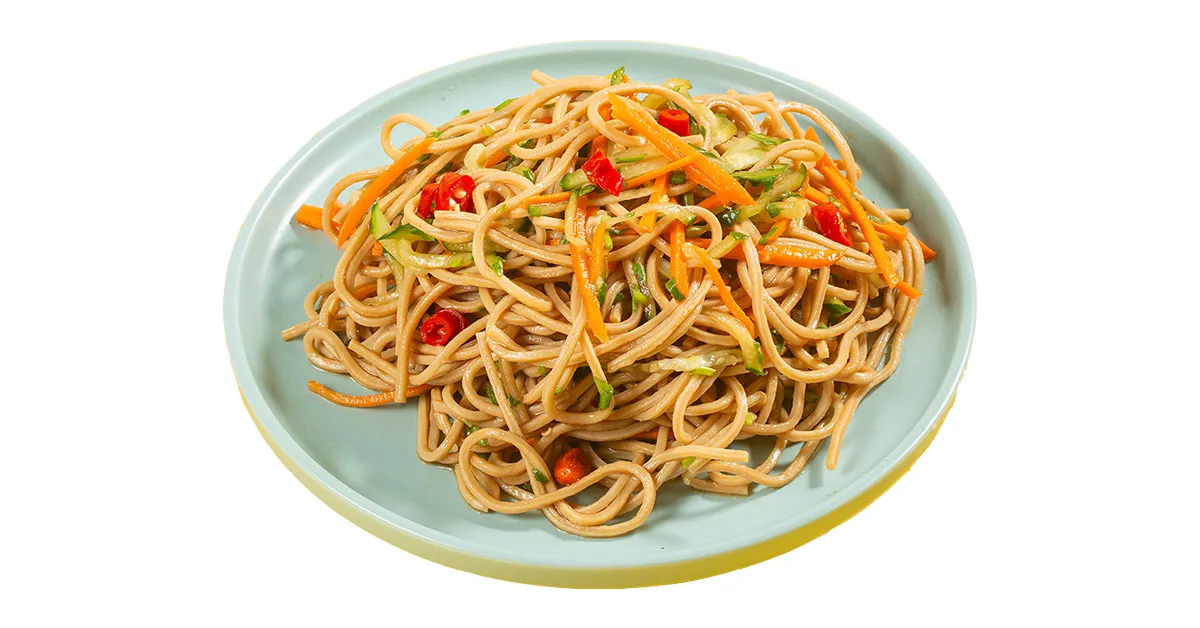
Conclusion
Building muscle on a natural vegan lifestyle isn’t just possible — it’s increasingly common among high-performing athletes. By swapping low-nutrient starches like white pasta for nutrient-dense, high-protein carbohydrates, you transform your meals into muscle-building tools.
- More protein
- Better amino acid balance
- Slower, steadier energy release
- Higher fiber and more micronutrients
This simple upgrade makes your carb intake work harder for you.
FAQ
Q1: How much protein do I actually need for effective vegan body building?
Q2: Does a bodybuilding plant based diet provide complete proteins?
A: It can, but diversity is key. Most grains are low in Lysine, an essential amino acid for muscle repair. Chickpeas, however, are naturally rich in Lysine. By incorporating chickpea noodles into your diet, you bridge the gap often missing in plant-based nutrition, ensuring your body has the full amino acid profile needed for synthesis.

